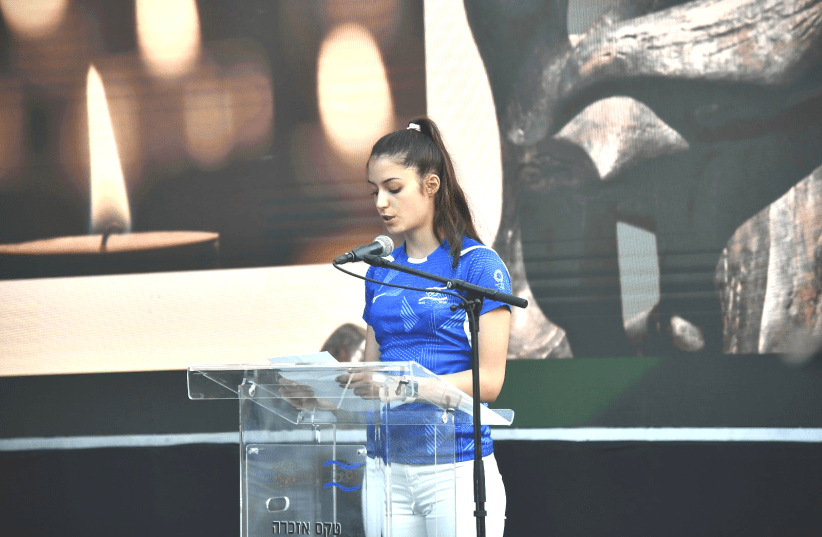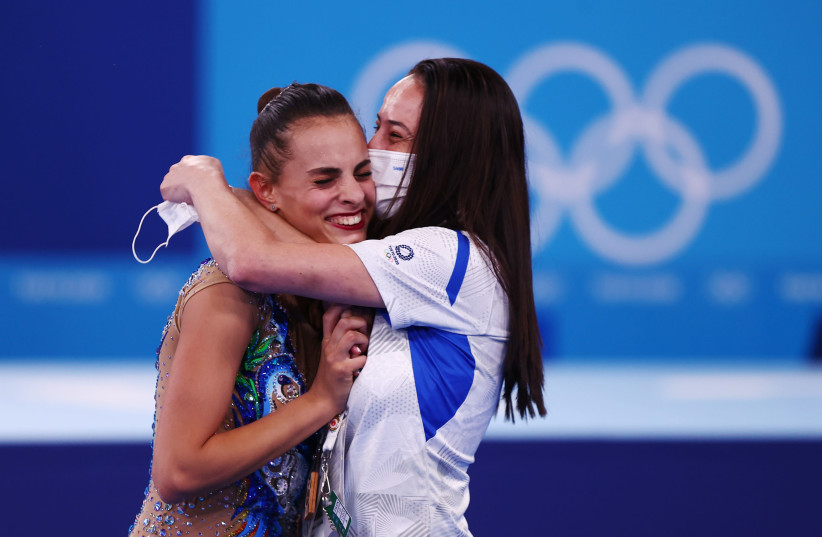The Olympic Committee of Israel gathered the local media in its offices overlooking the sprawling Hadar Yosef athletic complex for a press conference on Tuesday to review the recently completed Tokyo Games.
The results were impressive from many perspectives. The two gold and two bronze medals were more than any previous take. More notably, there was the first gold for a female competitor, not to mention the first gold for a female coach (the charismatic Linoy Ashram and Ayelet Zussman).
There were also first-time medals in several disciplines (Rhythmic Gymnastics, Taekwondo, and Artistic Gymnastics). Judo also registered a first by heroically earning a come-from-behind medal in the first-ever team competition.
A no-less encouraging sign for the future was the fact that 18 Israeli competitors reached the final stages of swimming, athletics, and other competitions. Honorable mentions also went to other Israeli first-time qualifiers, including its baseball team, which proved it could hold its own with the sport’s powerhouses, upsetting fifth-ranked Mexico and bowing out just three outs short of the medal round.
Barely 24 hours separated this review from a much different Olympic moment, as local sports dignitaries gathered to honor the memory of the 11 Israelis murdered at the 1972 Munich Games.
As IOC Chairman Yigal Carmi noted, the most monumental Olympic achievement in Japan occurred during the opening ceremony, even before the first starter’s gun went off. For the first time in 49 years, the world stopped for 60 seconds to pay respect to those who lost their lives while seeking to represent their country, along with the lofty ideals embodied in sport.
In the presence of Minister of Culture and Sport Hili Tropper, German Ambassador to Israel Dr. Susanne Wasum-Rainer, and others, Carmi movingly recounted the half-century journey made by the fallen athletes’ bereaved families. Led by Anki Spitzer and Ilana Romano (widows of Andre Spitzer and Yosef Romano of blessed memory), it took five decades to achieve recognition by the International Olympic Committee of murders that took place during the Games.
“There were many steps along the way that they believed this would not happen in their lives anymore, and they commanded the next generation to continue their struggle… a battle that ended when the announcer called for a minute of silence in memory of the Israeli athletes, with billions of spectators watching the live broadcast.”
While many were mentioned for their role, Carmi especially thanked Thomas Bach, International Olympic Committee president for changing the position of his organization. “He did it in his own unique way, with a loving embrace.”
Among the athletes at the memorial event, petite Taekwondo medalist Avishag Semberg, who had captured a bronze in Tokyo, once again captured the hearts of all those who heard her speak.
“We athletes, those who won medals and those who did not, felt it was a dream come true. We felt that the entire State of Israel was behind us. These games were special from day one – from the opening ceremony as members of all delegations observed a minute of silence in memory of the 11 Israeli athletes who were murdered at the Olympic Games in Munich. Those Games that were stained with blood, as well as [the Games that followed, which were stained] by the decision to ignore the event as if it had not happened.
“Thomas Bach, chairman of the International Olympic Committee and an Olympic champion himself, was a rare partner in favor of this move, which is all about recognizing families and honoring non-athletes. We thank the widows and bereaved families for the justified struggle, and for the privilege given to us as athletes to take part in this special moment.
“We all together carried the torch in our hearts, as their successors, and we will continue to carry it. may they rest in peace.”

